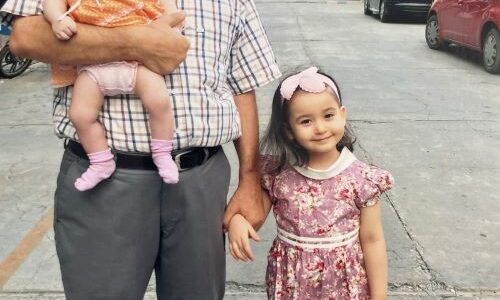Being a doctor, in a sense, means being prepared for unexpected moments and unforeseeable events. I find myself walking through the hospital corridors, where rapid and exhilarating rushes occur, visiting rooms in my imagination.
During the visit, it’s quite easy to sense the fatigue of the person who is sick, their anticipation of recovery, or their desire to go home. People tend to be somewhat delicate when they are sick. Seeing those bustling around them like moths, it gives them a feeling that the world revolves around them, how special they are. A little coyness probably doesn’t hurt. Waiting in a hospital room sometimes sets sails for deep thoughts. Reflecting on where you were coming from, what you were expecting yesterday, and what you are expecting today, you realize that unexpected things have happened.
While wandering through the hospital corridors in my imagination, this time I catch a glimpse of the healthcare workers. They conduct tests and procedures for each incoming patient with swift movements. Everything seems to be progressing as expected here. Because they are prepared for the situations they expect, things continue smoothly without any confusion.
Not far away, I see a lady standing with her friend, talking while wearing a white coat and a stethoscope around her neck. I can’t help but think that this charm attracts children. I imagine it as a calm, sweet, and peaceful conversation on the spot. Indeed, it’s not easy for healthcare workers to sit down and take a long break. Her friend must have come to visit the doctor. Perhaps her shift was over, and she was getting ready to go home, a healthcare worker preparing to leave work…
here was a quick entrance through the door of the emergency room. While running, the healthcare worker who had disembarked from the ambulance provided information about the patient on the stretcher. I tried to get closer and listen to their conversation. The doctor, who came running upon seeing the patient, immediately intervened. Suddenly, she said, “Hemorrhagic shock due to blood loss.” Without any hesitation, she went to her friend whom she had just chatted with and said, “Your blood type was AB. We need 50 ml of blood.” Her friend went to another room to donate blood at her request. The doctor returned to her patient. Through a general assessment, she realized that the patient was in shock and that the possibility of survival would only be possible if the blood loss was corrected. The situation was urgent and serious. I thought that it was good that she remembered her friend’s blood type without the need for a test. After the transfusion, the child was sent to the intensive care unit. Many procedures had been performed in a short time, but I thought that the patient wouldn’t know any of this because he was unconscious. It’s different to see how the emergency room workers manage to control everything without panicking and maintain order. This scene reminded me of God’s Name “Halim,” The All-Clement. With their merciful and cautious behavior, healthcare workers seemed to reflect this attribute.
I imagine the hours when the doctor visits the patients to check their health in the morning. Depending on the duration of their stay in the hospital, I observe the humorous welcomes of patients who grow closer to healthcare workers and the slightly shy and nervous demeanor of new patients. When I see doctors treating their patients with sweetness and gentleness in their conversations, I recall this hadith: “God treats His servants kindly and likes kindness and gentleness in all matters.”[1] In a profession, in a person, I can’t help but think about which attributes and names of our Lord could manifest and appear. I remember the child brought to the emergency room who was given blood and taken to the intensive care unit. I visit the patient with the doctor. I try to experience every moment from her perspective, understanding from her deep sighs that there is a mixture of anxiety and hope. The fact that some patients are stable and others are improving makes her feel good. Seeing the child who was so small yesterday sitting in bed having breakfast, she lets out a deep “Ah!” Her tiredness disappears in an instant. I see the gratitude of the patient towards the doctor, the contentment filling the doctor’s heart, and the happiness radiating from their eyes as they look at each other.
Life should be just like this. While passing by waiting, we experience unexpected things, and one day, all our waiting comes to an end.
[1] Sahih Buhari, Adab, 35.




